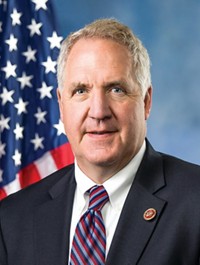Advertisement
Grab your lab coat. Let's get started
Welcome!
Welcome!
Create an account below to get 6 C&EN articles per month, receive newsletters and more - all free.
It seems this is your first time logging in online. Please enter the following information to continue.
As an ACS member you automatically get access to this site. All we need is few more details to create your reading experience.
Not you? Sign in with a different account.
Not you? Sign in with a different account.
ERROR 1
ERROR 1
ERROR 2
ERROR 2
ERROR 2
ERROR 2
ERROR 2
Password and Confirm password must match.
If you have an ACS member number, please enter it here so we can link this account to your membership. (optional)
ERROR 2
ACS values your privacy. By submitting your information, you are gaining access to C&EN and subscribing to our weekly newsletter. We use the information you provide to make your reading experience better, and we will never sell your data to third party members.
Policy
Chemical Regulation: TSCA Reform, Water Permit Debates Likely To Continue
by Cheryl Hogue , Britt E. Erickson
January 24, 2012
| A version of this story appeared in
Volume 90, Issue 4
Reform of the 1976 law that regulates the manufacture of commercial chemicals—the Toxic Substances Control Act (TSCA)—remains on the legislative agenda for 2012. There is broad support for modernization of TSCA among the chemical industry, businesses that use chemicals, environmental and health activists, and labor. These groups disagree, however, on the details.
Observers agree that a pending bill, S. 847, to update TSCA is unlikely to move through both houses of Congress this year. The sponsor of S. 847, Sen. Frank R. Lautenberg (D-N.J.), at the end of 2011 promised action on the bill. Lautenberg chairs the Senate Environment & Public Works Subcommittee on Superfund, Toxics & Environmental Health. The panel, however, has given no indication of when the bill might be called up for a vote.
Thus far, there has been “no meaningful accommodation” of the views of the American Chemistry Council, a major industry group, in any of the proposed changes to Lautenberg’s bill, says Calvin M. Dooley, ACC president and chief executive officer. Without accounting for ACC’s concerns, Dooley says, bipartisan support for a TSCA reform bill is unlikely. And without bipartisan support, the bill has virtually no chance of passage in this Congress.
Andy Igrejas, campaign director of Safer Chemicals, Healthy Families, says ACC has shut the door on any legislative action this year to update the chemical control law. “ACC has been withholding the kind of constructive engagement that would allow lawmakers to accommodate concerns,” he says. Igrejas’ group is a coalition of environmental and health groups and businesses that are seeking reform of TSCA. Even though the bill may not make it to the Senate floor, Igrejas says he expects Lautenberg’s subcommittee to take up S. 847 in late February or March. The panel’s efforts could lay the groundwork for legislation to rewrite TSCA in a future Congress, he adds.
Mike Wright, director of health, safety, and environment for the United Steelworkers, also is doubtful that legislation to modernize TSCA will move this year. S. 847 is caught in the partisan gridlock that has curtailed legislative action on Capitol Hill during this session of Congress. The standoff is likely to get worse as the November elections near, he says. The union, which represents many workers in chemical plants, sees eventual overhaul of TSCA as critical to maintaining U.S. jobs in this sector, Wright says.
Also looking forward to an eventual overhaul is the Society of Chemical Manufacturers & Affiliates. The trade group says in a statement that in 2012 it will “actively educate members of Congress and staff on how S. 847 would negatively impact specialty-batch chemical manufacturers, and will continue to share our vision for TSCA reform with them.”
Meanwhile, Congress is expected to continue to actively work on legislation that would eliminate a 2009 court-ordered requirement that pesticide applicators obtain a permit under the Clean Water Act (CWA) when spraying in or near U.S. waters. Those in favor of such legislation say the CWA permit is duplicative because the effects of pesticides on aquatic environments are already considered under the Federal Insecticide, Fungicide & Rodenticide Act (FIFRA).
The House passed the Reducing Regulatory Burdens Act of 2011 (H.R. 872), a bill that would eliminate the court-ordered permit requirement, last March. The Senate Agriculture, Nutrition & Forestry Committee passed the same bill in June, but the bill has yet to come to the Senate floor for a vote because Senate Environment & Public Works Committee Chair Barbara Boxer (D-Calif.) and fellow committee member Benjamin L. Cardin (D-Md.) have blocked its consideration. The senators argue that EPA’s standard for assessing aquatic effects of pesticides under FIFRA is insufficient to protect wildlife and possibly humans from harm.
Discussions by lawmakers about the permit requirement this year will likely focus on the ability of pesticide users to get permits in time and the possibility of users facing citizen suits under CWA, according to predictions by the Washington, D.C.-based law firm Bergeson & Campbell.
Also likely to be on the agenda this year for Congress is the reauthorization of the Pesticide Registration Improvement Act (PRIA). This law, which allows EPA to collect registration fees from pesticide manufacturers, is set to expire on Sept. 30. If PRIA is not renewed, it could have a “severe and adverse impact on the ability of EPA’s pesticide program to make timely decisions on pending registration activities,” Bergeson & Campbell wrote in a recent commentary. The law firm predicts that reauthorization of PRIA may encounter difficulties because of the budget deficit and “gridlock in Congress.”




Join the conversation
Contact the reporter
Submit a Letter to the Editor for publication
Engage with us on Twitter